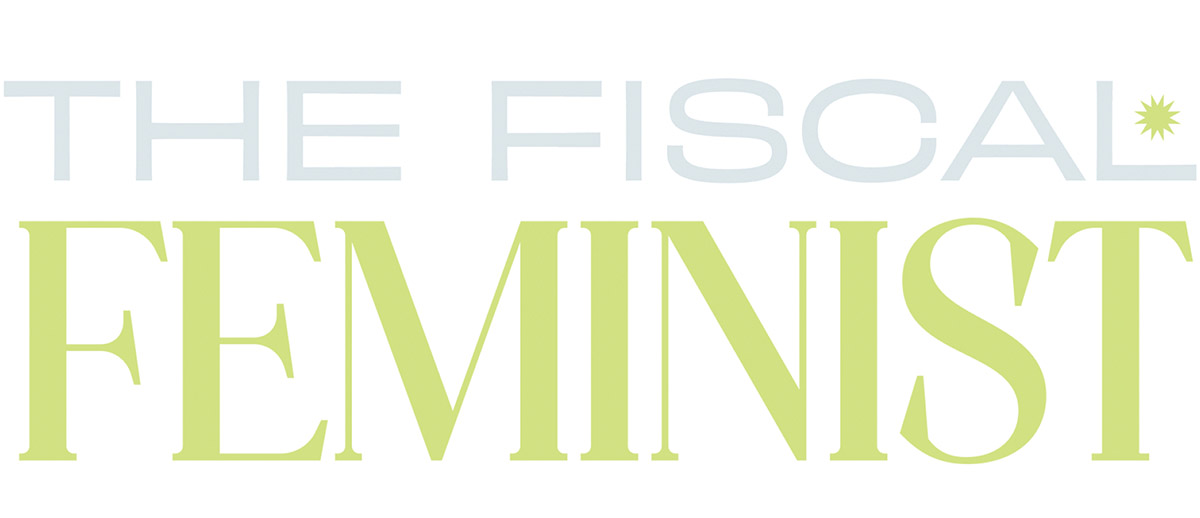What exactly is financial abuse?
Financial abuse is not as black and white an issue as most of us think it is. In most instances, we think of it in the context of a relationship with a romantic partner, such as a husband, domestic partner or boyfriend, and often it is exactly that. But financial abuse can also occur in circumstances where parents financially abuse their children, or elderly parents are financially abused by their children, or employers and bosses prevent an employee from questioning their salary and financial rights in the workplace.
Financial abuse is essentially using money as a weapon to exert the ultimate form of manipulation to maintain power and control over another person.
What does it look like?
- With a husband, partner or boyfriend—
- Sometimes, they are the breadwinner and withhold or hide their money.
- Other times, they are a financial leech.
Financial abuse is a common tactic used by people who choose to abuse through the control and isolation of their partner. Blending financial resources is frequently a tricky endeavor, and, can often result in abuse by one of the parties. Financial abuse can have many different looks, some of which include:
- Giving an allowance and closely watching how you spend it or demanding receipts for purchases;
- Placing your paycheck in their bank account and denying you access to it;
- Preventing you from viewing or having access to bank accounts;
- Forbidding you to work or limiting the hours that you can work;
- Forcing you to miss, leave or be late to work;
- Persuading you to have a lesser career so you make less money than him;
- Maxing out credit cards in your name without permission or not paying the bills on credit cards, which could ruin your credit score;
- Forcing you to file fraudulent legal financial documents;
- Stealing money, credit, property or identity from you or your family and friends;
- Using funds from children’s savings accounts without your permission;
- Living in your home but refusing to work or contribute to the household;
- Making you give them your tax returns or confiscating joint tax returns;
- Refusing to give you money to pay for necessities/shared expenses like food, clothing, transportation, or medical care and medicine.
- Keeping the family in debt, even when the abuser has resources, all done so that the victim thinks that there is little money available to live on.
It’s not as uncommon as we think, and there are different types of it with different levels of severity—it can involve your romantic partner, your parents, your siblings, or your employer…
And where does that leave you?
- Ruined credit scores and lack of access to financial accounts and inability to open new accounts solely in your name.
- Sporadic employment histories which make it difficult to re-enter the workforce due to large gaps in employment history and outdated skills.
- Legal issues and culpability due to holdings in joint names, fraudulent tax returns, or tax liabilities incurred without your knowledge.
- Many financial abuse victims continue to endure these relationships due to the lack of economic stability and no other viable options due to a lack of financial resources. It is a main reason that women often stay in physically abusive relationships as well because they believe that they have no viable financial means to leave and survive.
What can be done to extricate yourself from this situation:
- Build and maintain a safety net:
- Build savings in your name only without knowledge of the abusive partner.
- Work on restoring/maintaining your credit. Take proactive steps to understand your credit score.
- By freezing your credit accounts or having a credit bureau issue a fraud alert, you can make it harder for someone to open accounts in your name.
- Create a goal on becoming and staying independent, and persistently work towards it.
- Gather as much financial information as possible, such as:
- Copies of legal and financial documents;
- Birth certificates;
- Credit card statements;
- Social security numbers; and
- Health records.
- Retrain and seek employment, even if it is different from what you were doing when you left the workforce;
- Do not deposit your paycheck into your partner’s account or a joint account.
- Seek help. Create a network of people who can help you – do not be afraid to ask for help.
- Talk to people about your situation and inquire if anyone would be able to help you.
-
- If immediate family or friends are not a possibility, reach out to local domestic abuse support groups, or other counselors.
- Most states have assistance programs to help survivors of domestic violence (financial abuse is within this category). Find the resources offered in your state at the National Coalition Against Domestic Violence
- Talk to a qualified financial advisor. You can get free financial education and advice about dealing with debt, a mortgage, or credit issues from the nonprofit National Foundation for Credit Counseling. This advisor can help you make a step-by-step plan to repair your credit and rebuild your finances.
- If immediate family or friends are not a possibility, reach out to local domestic abuse support groups, or other counselors.
What preventative measures can be taken to avoid being a financial abuse victim?
- Don’t co-sign with a partner who has a history of reckless financial behavior/late payments.
- Be aware and in control of household debt.
- Do not deposit your paychecks into your partner’s sole account.
- Save your money in accounts in your name only.
- Regardless of whether one spouse is employed or not, both should be knowledgeable of household finances.
- Be aware of financial conversations in the household.
- Stay employable, even if you choose to be a stay-at-home partner, always be engaged in a manner that maintains desirable professional skills. For example, volunteer in the non-profit world in some capacity that uses your professional skills.
- Do not allow a partner to convince you to take a lesser professional position with less pay than other offered options, so as to ascertain that you make less than your partner.
- Set clear boundaries and do not allow a partner to manipulate you into becoming totally financially dependent on them, or, allow a partner to become totally financially dependent on you – the financial abuse and manipulation can work both ways.
With parental financial abuse of children—
- Parents know their children’s personal information that is needed for many financial products, such as, name, address, Social Security number and birth date. Most parents do not financially abuse their children maliciously but because they have financial difficulties that may influence them to take desperate measures to obtain liquidity such as opening another credit card or obtaining a loan. The following are examples of parental financial abuse of a child’s finances (the child may be an older child):
- Open a credit card in the child’s name and use it to run up a balance that the parents cannot pay fully.
- Take out a loan with the child’s information and default.
- Use the child’s information to get a mortgage on a home.
- Co-sign a loan and take out more money than the child needs – then spend the difference.
- Apply for consumer goods like a cellphone in a child’s name – then they don’t pay the bill which goes to collections under the child’s name.
- If you become aware that your parents have used your identity to obtain credit cards or loans:
- Pull your credit report;
- Freeze your credit report;
- Have a conversation with your parents and ask them to step up and take responsibility;
- Take measures to pay off the loan; speak to the lender to establish a payment plan.
With financial abuse of the elderly—
Financial abuse among the elderly is growing exponentially and often the perpetrators are family members and caregivers. The National Center on Elder Abuse reports that 57.9 percent of perpetrators of financial exploitation of older adults are family members, 16.9 percent are friends and neighbors and 14.9 percent are home care aides.
- Often if family members have substance abuse issues, gambling problems, or financial issues they can’t escape, they will use a senior parent’s assets to attempt to solve their problems.
- The abuser may have power of attorney or durable power of attorney for the senior, or they may have joint bank accounts that they can use at will.
- Often family members and caregivers will misuse ATM cards, credit cards, and checks.
- They may simply take money, property, or valuables.
- They might “borrow” money with no intention of paying it back, cash or sign pension or social security checks without permission, or, create a deed or title transfers to shift money and property to themselves without the elder’s consent.
- Needed care, including medications, durable medical equipment, and more, may be denied in order to conserve funds for inheritance.
Indications of senior financial abuse are:
- unpaid bills and notices of eviction;
- unexplained withdrawals from bank accounts or transfers to other accounts, particularly joint accounts with the abuser; and
- other unusual activity in their accounts, such as inexplicable care charges that seem inappropriate.
Seniors are a very vulnerable population, and the best way to obviate future abuse is for seniors to prepare in advance with directives and powers of attorney appointing a trusted family member, friend or advisor. If you are aware of a senior being financially abused, speak to an advisor/attorney to determine the best way forward to rectify the situation. If the abuser has power of attorney, have it revoked immediately.
In the work-place—
Financial abuse can occur in the work-place if an employee is constrained from questioning financial arrangements and compensation because a supervisor/boss reacts with anger and threatening behavior when approached with questions.
In this situation, you should discuss the situation with your Human Resources department, your boss’s superior, or seek legal counsel. It is also prudent to document your conversations with your boss and his reactions, to support your claims.
The Nuances of Financial Abuse…
Financial abuse may not always be obvious to the outside world, but it does exist, and it can most definitely prevent the abused party from acting freely and independently, and, can cause mayhem in their life. Hence, it is IMPERATIVE that we take responsibility in knowing the financial facts of our lives, and keep a watchful eye over financial transactions, affiliations, and relationships.
Money is power, so don’t give up the power!
October is Domestic Violence Awareness Month
I would like to thank Kenny Molina, Associate, Solutions and Analytics, at The Bahnsen Group, for his assistance with research on this article.




